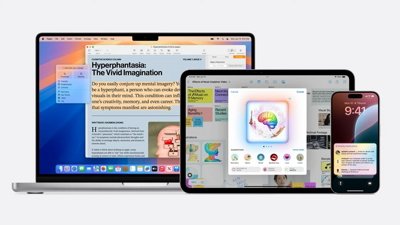Eight Mile Style had sued Apple, creator of iTunes, and Aftermath Records, the company that controls Eminem's songs, contending that the artist's music was made available for download without his permission. The two parties went to trial one week ago over the matter.
According to The Associated Press, an agreement was reached between Eight Mile Style and Apple Thursday evening. The details of the settlement were not revealed.
The trial lasted five days before Thursday's agreement. Earlier reports had suggested the court battle could conclude this week.
Apple had revealed in the trial's first day that Aftermath receives 70 cents for each iTunes download, and Eight Mile Style earns 9.1 cents. The Eminem publisher argued that further permission and new, separate contracts should be required for digital distribution. They felt the sale of the artist's songs on iTunes was not covered under the terms of their original agreement with Aftermath.
Eminem, whose legal name is Marshall Mathers, was not a part of the court proceedings.
In their complaint, Eight Mile Style asserted that they and Eminem were owed $2.5 million from Apple for the sale of the artist's songs. Of that, nearly half a million was said to stem from the musician's biggest hit, "Lose Yourself."
In response, Apple countered that it had legally obtained the rights to sell Eminem's songs from Aftermath. The company's attorney said in court that Eight Mile Style continues to cash royalty checks, which have amounted to "a lot of money."
This latest development looks to bring to a close yet another legal run-in between Apple and Eminem. In 2004, the artist sued over the use of the song "Lose Yourself" in an iPod ad. The issue was later settled out of court for an undisclosed sum. In 2007, he sued again over alleged copyright violations. That complaint eventually led to the trial that began last week.
 Katie Marsal
Katie Marsal







 Andrew Orr
Andrew Orr
 Malcolm Owen
Malcolm Owen
 William Gallagher
William Gallagher

 Chip Loder
Chip Loder
 Marko Zivkovic
Marko Zivkovic






-m.jpg)




42 Comments
Aftermath agreed to give Eight Mile Style/Eminem a larger cut of their 70%.
Apple agreed to keep selling his music.
Win/win/win.
this was a man-in-the-middle hack on the part of aftermath.
Haha- knew it.
score Eminem 2, Apple 0
In their complaint, Eight Mile Style asserted that they and Eminem were owed $2.5 million from Apple for the sale of the artist's songs. Of that, nearly half a million was said to stem from the musician's biggest hit, "Lose Yourself."
In response, Apple countered with a song entitled "Go F Yourself!" (apologies for the crude thought, just my warped sense of humor).
I'm all for fair payment, but Eight Mile might consider not bitting the hand that feels you.
One wonders if Apple might not want to carry Eminem in the future...assuming Eminem has a future.